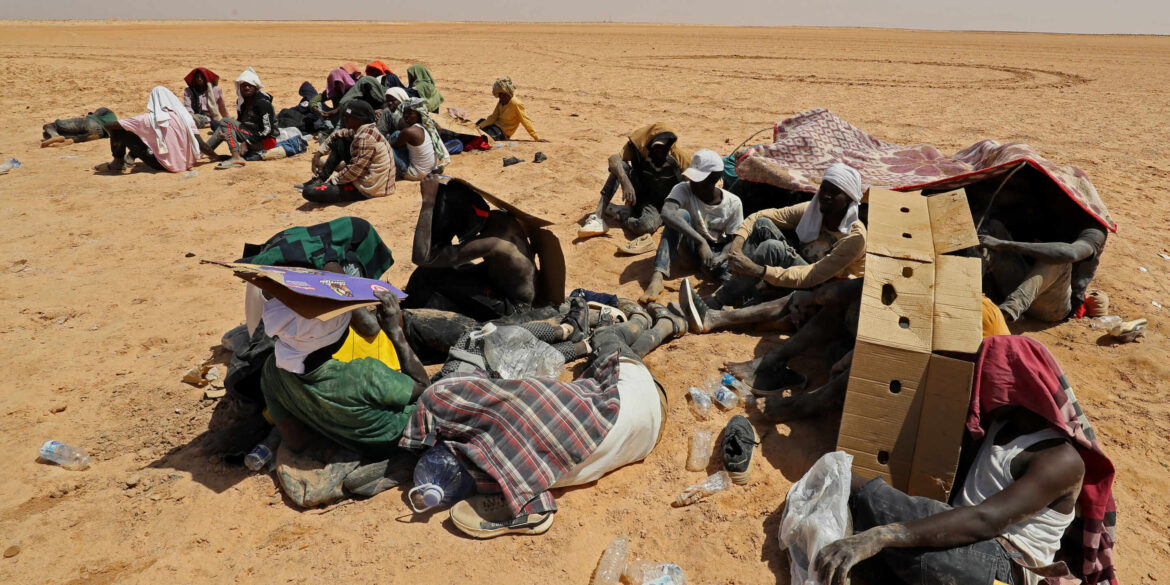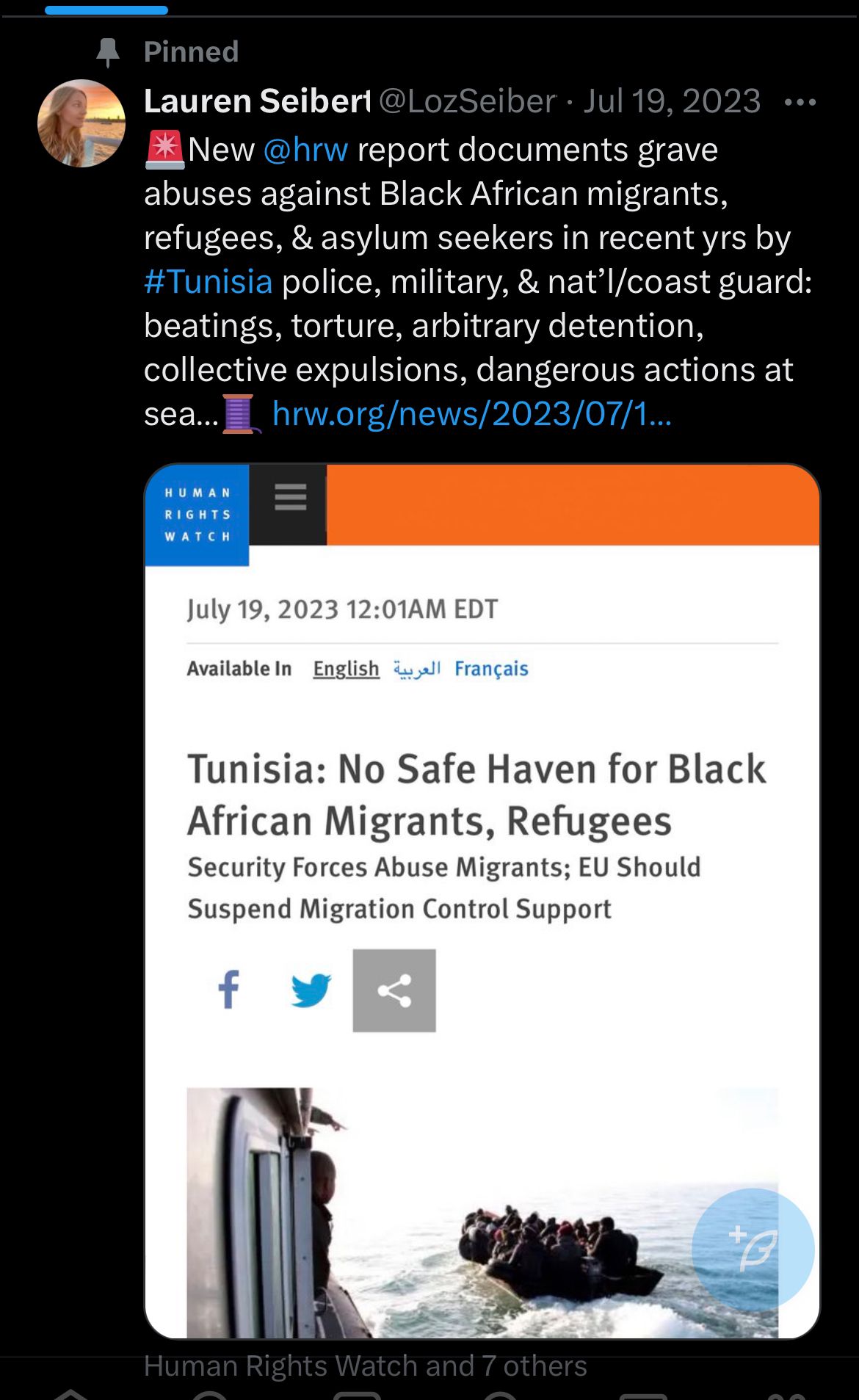Each year, tens of thousands of migrants face detention and forced removal into remote, perilous areas like the Sahara desert, where they encounter kidnapping, torture, sexual violence, and death.
Recent reports suggest that at least 29 individuals died, with many more missing, after being expelled from Tunisia towards the Libyan border amidst the Sahara desert.
Investigations by prominent media outlets including Le Monde and the Washington Post reveal grave accusations against Tunisia, Morocco, and Mauritania.
They are accused of conducting these “desert dumps” and other severe human rights abuses.
Julia Pascual, a journalist from Le Monde Afrique specializing in migration issues, highlighted that the European Union allocated nearly $450 million to these three countries since 2015, ostensibly to curb migration toward European borders. “Men, women, and children are arrested, transported for more than five hours into the desert, and abandoned without food or water,” Pascual reported. “Many perish on this journey, suggesting these actions are not accidental but deliberate.” Security forces are implicated in these abandonments.
The EU’s support includes funding for vehicles, training security officers, and establishing detention centers. Critically, both EU funds and contributions from member states are implicated in these practices.
Under EU and international laws, funds must uphold human rights standards. However, oversight remains inadequate. European officials privately concede the challenges of monitoring all fund uses effectively.
Investigations reveal that anti-migrant operations often involve racial profiling, aggressive policing, and disproportionate use of force against migrants, asylum-seekers, and refugees. Arbitrary arrests, detentions, and forced relocations are rampant, particularly affecting migrants from sub-Saharan Africa.
Investigations reveal that anti-migrant operations often involve racial profiling, aggressive policing, and disproportionate use of force against migrants, asylum-seekers, and refugees. Arbitrary arrests, detentions, and forced relocations are rampant, particularly affecting migrants from sub-Saharan Africa.
Reports from Human Rights Watch document cases where migrants, asylum seekers, and refugees were forcibly returned or transferred by Tunisian authorities to borders with Libya and Algeria.
The situation worsened following Tunisian President Kais Saied’s directive in February 2023 to crack down on irregular migration, linking migrants to crime and demographic threats. UN experts condemned Saied’s remarks as racist, noting a subsequent rise in hate speech and discrimination.
Agnes Gita of GBS Africa underscores the desperation driving migrants: poverty, climate change, political instability, and violence. Advocating for open borders within Africa, Gita argues it could mitigate these risks, allowing free movement of people, goods, and services across the continent. “This,” she emphasizes, “is a critical step in reducing the need for dangerous crossings to Europe.”
The United Nations has expressed grave concerns about the treatment of sub-Saharan migrants in Tunisia, noting increased targeting and restrictions on humanitarian assistance.
The Sahara has tragically become a frequent and perilous punishment for migrants seeking safer lives in Europe.


